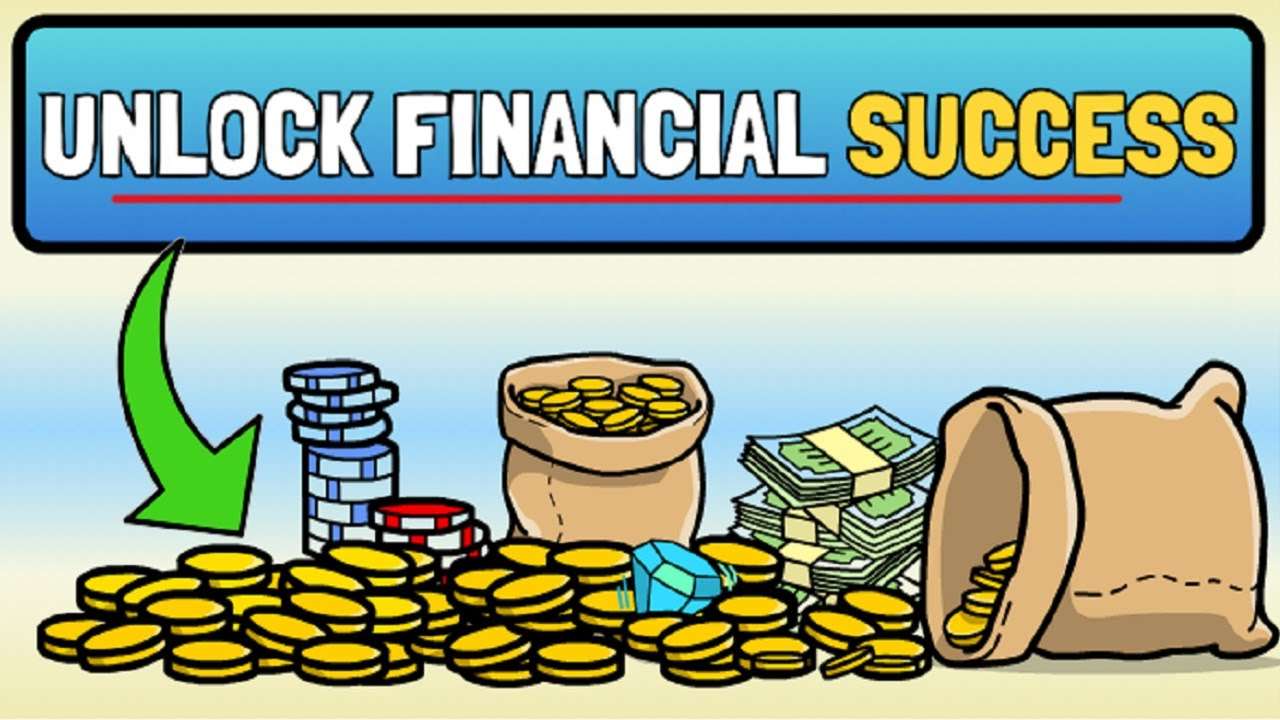Keeping a budget can feel overwhelming at first, but once you master it, it can be the key to your financial goals. Whether you’re saving for a big purchase, building an emergency fund, or just trying to avoid living paycheck to paycheck, budgeting is a powerful tool that gives you control over your finances.
Budgeting isn’t just about restricting your spending — it’s about understanding where your money is going and making it work for you. By creating a clear plan for your income, savings, and expenses, you can reduce financial stress, make better decisions, and build a stronger financial future.
Just remember that I’m not a financial adviser, but I will go through how I regularly keep a budget.
So, in this video, we’ll cover 6 essentials for keeping a budget that will help you manage your money.
Number 1 : Understanding the importance of a budget
When you take charge of your money, you gain control over your life. So, the first essential part of budgeting is knowing why it’s so important. Here’s a few ways that a budget is not just a financial plan but a pathway to self-improvement.
- Financial Awareness: Learning to budget increases your awareness of your financial situation, which in turn leads you to making better decisions.
- Discipline and Consistency: Sticking to a budget requires discipline. It teaches the value of delayed gratification, helping you develop a mindset that is focused on self-control and growth.
- Reduced Stress: Financial uncertainty can be a significant source of stress and anxiety. A well-planned budget can alleviate these feelings, allowing you to focus on other aspects of personal growth, like mental and emotional well-being.
- Investment in Self: Budgeting enables you to directly allocate some of your money for personal development, such as courses, workshops, or resources that contribute to your growth. We’ll get into that later in the video.
By staying on top of your budget, you’re setting yourself up for success—not just financially, but in all aspects of your life. This is why, every month, you should make sure to create and follow a budget as simple or complex as you want to it be.
Number 2 : Income
In creating your budget, you must account for your income. This is the amount of money coming in during the specified month, even if it is not the same every time. Without knowing this, it would be impossible to manage your finances.
Outline all your sources of income, including:
- Your paycheck from your job, your business, or your side-hustle
- Maybe your family gave you a monetary gift for Christmas
- Any return on your investments
Make sure to only account for the net income, after taxes and deductions. This will be critical for accurate budgeting.
One concept you should keep in mind is that it’s not necessarily about spending less but earning more. This is easy to say, but in practice takes some time. Seek to learn new skills that enable you to get better at your job or your business management. We’ll get to that part in just a moment.
Just remember not to spend it all at once, or you’ll regret it when you have nothing left a week away from getting your next paycheck.
Number 3 : Savings
It’s important to have savings even if the interest rate isn’t doing much. Try to set aside some of your money before you spend on anything else. As they say, pay yourself first.
You could, for example, make it automatic at the start of each month. Make it a habit to allocate part of your income to your savings. When possible, the recommended minimum amount is 10% of your income.
However, if putting money away means you are struggling to keep up with your bills, then don’t keep the money. Focus on paying those bills, putting food on your plate, and increasing your income.
But, once you are able to have savings, make sure you have access to this fund in case of emergencies (accidents and unexpected bills). In fact, your first savings goal, should be to have 3 to 6 months’ worth of expenses available, just in case.
Once you have this covered, don’t forget that savings is still money that can be spent. Should be spent. Save for short and long-term goals, such as vacations, a new home, or maybe your first car. Don’t spend some of your savings on buying stuff you don’t need. Put your money towards something that is truly important to you.
Number 4 : Investments
Let’s say there are two types of investments: financial and personal.
Financial Investments
Financial investments are assets you put your money towards hoping that, with patience and time, will grow your wealth.
We’ll get into the details of financial investing in another video, but keep in mind that it is a good idea to make your money work for you, like dividend investing for example, especially if you make the most out of compounding interest. You’ll be glad you did when you have that extra money coming in each month that pays your bills.
However, there’s no true get rich quick method. Learn how to invest. Be patient, consistent, and safe. Research how to invest in stocks, bonds, mutual funds, or even real estate. Here’s an affiliate link, if you want to check the investing broker that I use, Trading 212, for any of your investments!
However, just like for savings, if you can’t afford to invest your money yet, don’t do it. And if you can invest, only invest what you can afford to lose. Every financial investment has risk involved.
Personal Investments
As mentioned previously, keeping a budget is part of your self-improvement journey. This means that your budget should also reflect your self-improvement expenses.
Invest in yourself as soon as you can! Use some of your hard-earned money to work on yourself. You deserve to.
Here’s a few ways you can invest in yourself:
- Looks
- Make yourself look good and feel good by buying new clothes. Make sure to buy the quality products (more on that later). Get a membership subscription to the gym so that you can regularly workout and get your body in good health.
- Education
- Learn from courses and books. Seek new skills. Get new certificates. This often leads you to higher income potential, either from your career or business. Basically, learn more to earn more.
- Skills & Hobbies
- Depending on the skills you work on, there is again a potential for higher income later on. But don’t forget that you are human, and that hobbies, activities just for your enjoyment, are important for your well-being, and therefore, for your self-improvement. So don’t forget to include these too!
- Project
- If you have a project in mind, a small side-business you want to build, it can be a good idea to allocate some money towards it. Take it seriously. But, if you are already making a good amount of money from this, it’s best to keep a separate budget, so that you don’t get lost in all the numbers.
Number 5 : Expenses
In a simple budget, there are two types of expenses: fixed and variable, and it’s important to track both.
Fixed Expenses
Starting with fixed expenses, these are your monthly obligations and include:
- rent/mortgage
- utilities
- insurance
- phone bills
- subscriptions
This section also includes any of your debt repayment plans. Get those sorted out as soon as you can so that you don’t accumulate that dreaded interest rate!
Evaluating your expenses is a good way to figure out how to reduce them. As mentioned earlier, the goal is not to necessarily to cut your expenses, but it is still a good idea to conduct an audit and see if you could eventually make a difference.
Are you maybe paying a little much on some of your bills? You could maybe call the various organisation and cheekily ask to pay less. Plus, check if you have any subscriptions that are no longer relevant for you. Do you really need that monthly magazine that you never read but just look at the pictures?
Once you know what recurring bills you have to pay, set up automatic payments whenever possible to avoid any late fees and missed deadlines.
Variable Expenses
As for variable expenses, these include groceries, entertainment, transportation and whatever is left.
When budgeting for groceries, it will depend on where you live and the cost of living there. Have a look around, see what you usually buy and check out the prices.
Be sensible, don’t buy that expensive caviar in the first week after getting paid if it means you eat barely anything in the last week of the month. Prioritise what you need to buy in order to be healthy, then see if your income allows you to allocate more spending on groceries. And don’t forget to check out discounts and coupons. Plan your meals ahead and make a list of what you need to buy before you go the store. And remember, never go grocery shopping when you are hungry!
Don’t forget to account for your transportation expenses. These include gas, car maintenance and public transport. It’s up to you to choose how you commute to work and get around, but make sure you are aware of the money you are spending on it. You also decide whether to include car loan repayments and insurance here or whether you keep these in your fixed expenses.
For the entertainment part of your expenses, be reasonable. It’s easy to overspend in this category. Don’t get me wrong, I’m not telling you not to go out and have fun with your friends at the bar, cinema, or bowling alley. Enjoy yourself, enjoy your life but be careful not to overspend and make yourself miserable in other areas.
In fact, you should prioritise going out and creating memories with others rather than making material purchases. Use your money to do things, not buy things.
In his book “The Happiness Advantage”, author Shawn Achor states that:
“Contrary to the popular saying, money can buy happiness, but only if used to do things as opposed to simply have things”.
When you spend money on experiences, rather than material objects, it produces more positive emotions that are more meaningful and will last for longer. So, try to allocate some money for activities. You could always look for cheaper alternatives anyway. Set yourself some limits so that you don’t go overboard.
Whatever is left after subtracting all your savings, investments and expenses from your income, I call “spare”. This is your discretionary spending and is meant for any purchases that are occasional such as gifts or spontaneous buys. However, be careful with these. If you can’t afford it, don’t buy it. Otherwise, that defeats the purpose of keeping a budget.
If you do decide to purchase something, then, as the author Richard Templar puts forward in one of his rules for life:
“Shop for quality, not price”.
Quality items last longer, are stronger, and don’t break so easily, meaning that you won’t need to replace your purchase anytime soon. In the long term, you might even save money by doing this!
Your “spare” money should be the last of your worries. Focus on everything else mentioned previously. Focus on having enough to eat, get to work and pay your bills.
Number 6 : Tracking regularly
Tracking is easy. You subtract each expense you make throughout the month, from the amounts you set in each category. Regularly tracking expenses is key to staying on budget. Without consistent tracking, it’s easy to lose sight of where your money is going.
Aim to do this several times a week, either by checking your bank account or using receipts and updating your budget accordingly.
I recommend creating a spreadsheet to track your budget either on excel or google sheets. It’s a good idea to use the exact amounts, even if it’s not whole numbers. This will allow you to avoid any discrepancies between your budget and your bank account.
Keep in mind that your finances won’t stay the same throughout the years. Be flexible, adjust your budget to accommodate any lifestyle changes. Re-evaluate it whenever it is needed.
Take it seriously and keep your budget up to date regularly.
To Recap
In order to manage your finances correctly, it is crucial to keep a budget. Understand the importance of tracking your money. Outline your income. Put some money into a savings account and invest some of it. Be careful with your expenses and track them regularly.
Spend less than you earn, and whatever happens, you can handle it.


